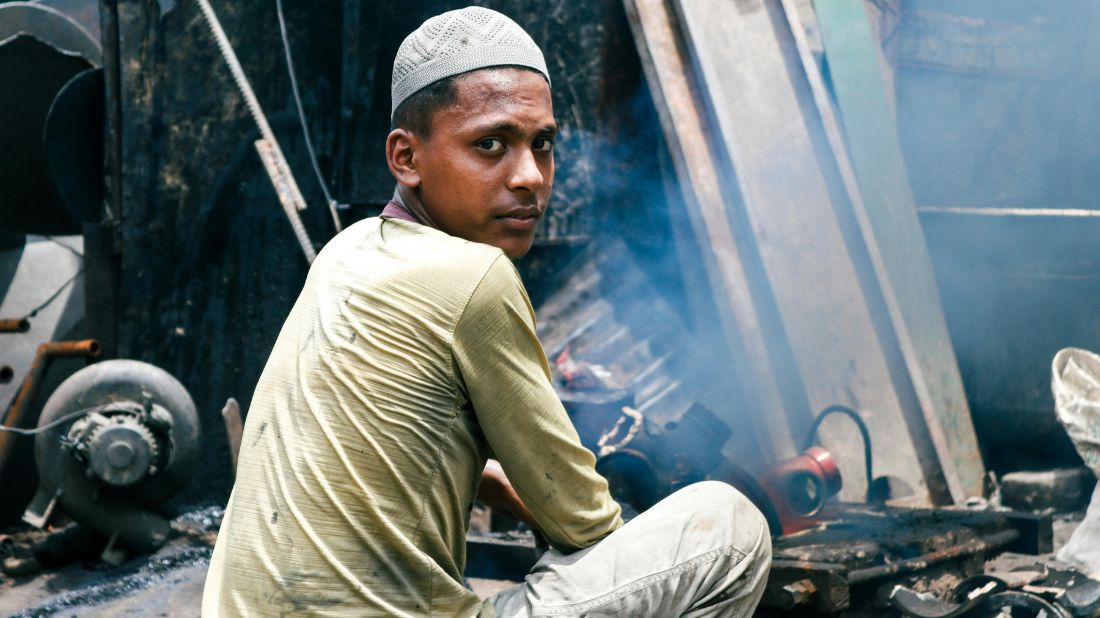Whenever I see complex ideas like “Poverty Trap Theory,” I sometimes get lost in the jargon. However, I discover myself every day in the capital city and see real-life examples. It is so interlocked in our lives that we pursue this as normal sometimes.
If I really want to dive into the topic of ‘learning poverty,’ I don’t need to get far away. A shop downstairs sells evening snacks and has a picchi (child laborer) called Moin. Moin is around ten years old and helps the shop owner.
In the morning, when I go downstairs to have my breakfast with Porota and Daalvaaji, I see Moin is already there supporting other employees of the shop. Moin is not old enough to deal with the huge tawa (a Bangladeshi style of fryer) yet, but he surely helps to make the dough or cut onions and chilies with a very sharp knife.
Moin spends the whole day at the shop. He is there from 6 in the morning to 11 when the shop closes.
One day, I asked him out of my curiosity, “Moin, do you even study?” He nodded in a negative way, and I realized that was a no-brainer question.
To write about him, I recently had a casual interview with Moin. Although I took some of his busy time, I learned he works here to support his family. His father is a rickshaw puller and her mother works as a housemaid. Moin is the third child of the family.
His elder brother Masud works in a motorcycle garage, and his sister is waiting to get married.
The money all four working personnel earn is not still enough to support a family of seven, counting two of his younger siblings.
I asked him, “What do you want to be in the future?” Moin responded with a dreamy eye that he wants to be a ‘hotel’ (he meant restaurant) owner.
Moin’s dream is limited to his short window of the world. When someone asks a child of his age from a middle-class family, they usually respond with doctor or engineer. However, the hardships of real life confined Moin’s dream so much that he could not imagine a life beyond the snack shop.
Like Moin, there are thousands of children confined in the trap of poverty. As they are born poor, they have to be poor. Some can argue with hot-take here, some even try to say the phrase “If you are born poor it is not your fault, It is your fault when you die poor.”
But the question remains, how many children can break the cycle of poverty? How many of them can attend school when they have to provide for their family?
It’s rhetoric. The answer is only a few.
That makes these complex ideas like “Poverty Trap Theory” really a thing; and people of all classes should come forward to rescue their fellow trapped human beings.

